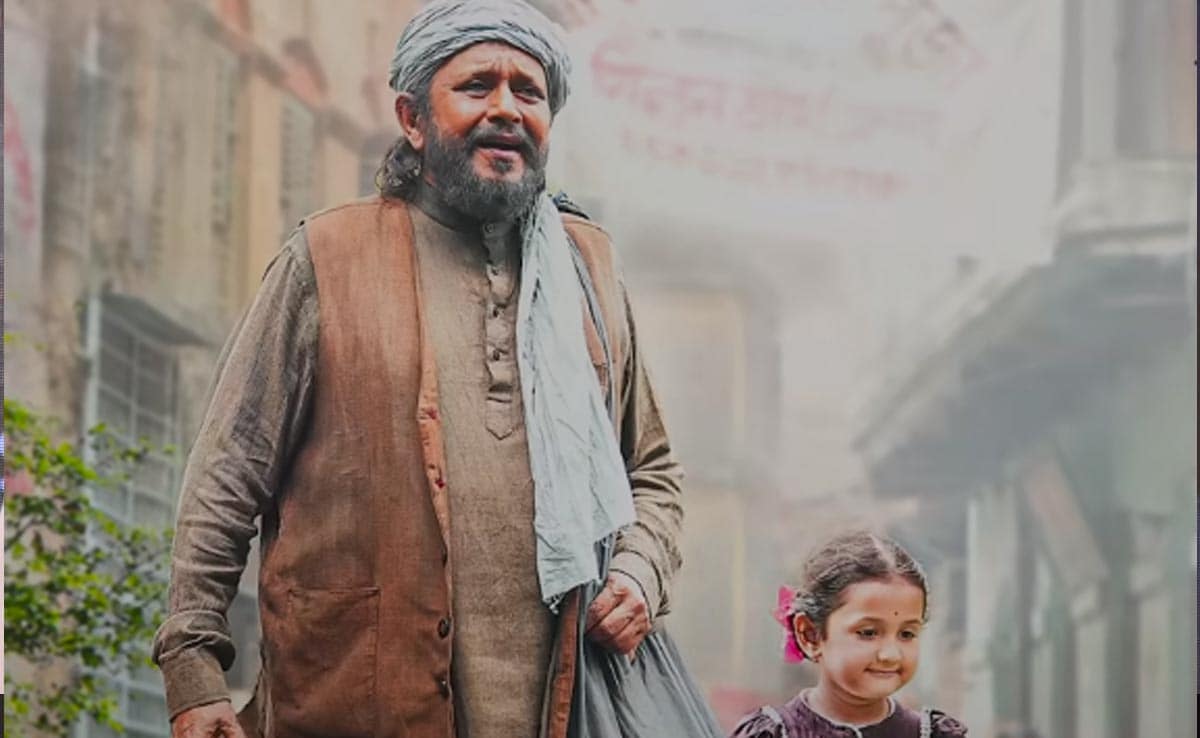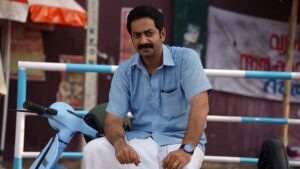Mithun Chakraborty delivers a superbly moving performance

Why would a filmmaker working in 21st century Calcutta feel the urge to turn to a story written 130-odd years ago for creative inspiration? If this question is on your mind (it must not be wrong or absurd), director Suman Ghosh answers it emphatically in his adaptation of Rabindranath Tagore’s 1892 short story, Confessor. The film’s contemporary resonance is undeniable.
The last time the story was adapted for the screen, India had only been independent for ten years. Bangla by Tapan Sinha ConfessorReleased in 1957, a Hindi version of the story directed by Hemen Gupta and produced by Bimal Roy followed four years later.
Picture Biswas and Balraj Sahni, the two thespians who play the lead protagonist Rahmat Khan, a traveling dry fruit vendor from Afghanistan who develops a paternal bond with Mini, a girl from Calcutta who reminds him of the daughter he left behind in his home country, in Indian cinema. Considered among the greatest actors of all time.
As recently as 2018, BioscopeA Hindi film starring Danny Denzongpa, updates Kabuliwala and features Rahmat Khan as a traveling bioscope operator. The girl he tells the story about grows up to be a documentary filmmaker based in France.
Ghosh’s new Bengali-Hindi film, produced by Sri Venkatesh Films and Geo Studios, returns to the original kernel of Tagore’s story. It is set in mid-1960s Kolkata. Another screen performer of proven caliber wearing Rahmat Khan’s attire and turban, Mithun Chakraborty.
Chakraborty delivers a superbly moving performance as a lonely man forced to leave his home in Afghanistan and travel to India due to an unpaid debt. The opening lines he delivers – he tells a story to his daughter Razia – till his melancholy parting words in the 106-minute film – he is a symbol of perfection.
Kabuliwala derives its undeniable strength as a story from the quality of the lead performances, but it also benefits greatly from a solid supporting cast that includes Abir Chatterjee as Mini’s writer-father Arvind Mukherjee and Sohini Sarkar as the girl’s mother, Sneha. No less impressive among the cast members is, of course, child actress Anumegha Kahali. He is an instantly lovable scene stealer.
To contextualize as well as universalize a displaced man’s search for love in a foreign city, the director and Sreejeeb’s screenplay locates the story in 1965, the year of the Indo-Pakistani war and the best period from Rahmat Khan. Make a living in Kolkata. Fear has spread.
Minor changes have been made to the story line but they do not take the focus away from the central humanitarian concerns of Tagore’s timeless story. Indeed, they are employed to reinforce the power of love to transcend geographical, cultural, linguistic and religious differences.
Ghosh presents a simple story of a connection forged by two souls unconnected by superstition, without any bells or whistles. He sticks to the core principles of storytelling and creates a neat package of mood, emotion and thematic emphasis. Subhankar Bhar’s seamless camerawork, Sujoy Dutta Roy’s seamless editing and composer Indradeep Dasgupta’s restrained background score and songs are in perfect sync with the film’s muted yet evocative timbre.
The setting and period are expertly crafted without resorting to any fancy techniques. References to Indian football greats Jarnail Singh and Chuni Goswami during live radio commentary from a match at Kolkata Maidan bring to life a bygone era and the city’s enduring romance with the beautiful game.
Greatly acted and brilliantly imagined, Confessor Relies on gently calibrated sentiments to reflect the tensions and prejudices that inevitably pervade a wartime city, which stands not only for the time and place in which the film is set but also for an era of global conflict and mistrust. Currently going through.
These are dark times where people don’t trust each other, with Arvind citing favoritism to his wife who helps the latter and her family, including the maid Mokkoda (Gulshanara Khatun), rearing against Rahmat when intimate with his younger Mini (Anumegh). Kahali) increases.
Mini’s repeated questions to Rahmat (What’s in your bag, Kabuliwala?) assume an additional resonance given the fragile state of the world. Jalalabad’s amiable, God-fearing Pashtun carries no baggage, but he’s an outsider in a big city during war, making him a prime target for bigotry. Forces and people he cannot understand, let alone control, begin to affect his relationship with Minnie.
Rahmat and his compatriots live in a narrow house in the heart of the metropolis. Continually victimized by injustice, they are forced to limit their involvement with the city and its people to the bare necessities, which are shawls, dry fruits and asafoetida in case of mercy, and act as a moneylender’s agent.
The only unadulterated bond he can form in the town is with the cheeky Minnie, who has an innocent personality. The girl’s liberal father is able to understand why Rehmat is drawn to Mini but everyone else looks at the man in disguised fear. There are rumors that he may be a kidnapper. Some people mistake him for Pakistani.
confessor It’s a Mithun Chakraborty show but, given a script that captures the spirit of Tagore’s unabashedly inclusive worldview, Suman Ghosh’s film has a lot more to offer than just an actor, a performance and a story. And therein lies a strong response to any doubts that may arise about the film’s relevance today.



